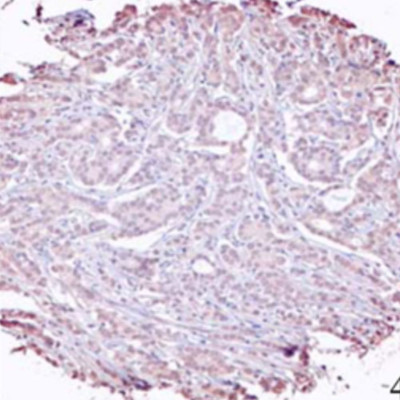Abstract
Basal-like breast cancers (BLBCs) are very aggressive, and present serious clinical challenges as there are currently no targeted therapies available. We determined the regulatory role of Y-box binding protein-1 (YB-1) on epidermal growth factor receptor (EGFR) overexpression in BLBC, and the therapeutic potential of inhibiting EGFR. We pursued this in light of our recent work showing that YB-1 induces the expression of EGFR, a new BLBC marker.
Primary tumour tissues were evaluated for YB1 protein expression by immunostaining tissue microarrays, while copy number changes were assessed by comparative genomic hybridization (CGH). The ability of YB-1 to regulate EGFR was evaluated using luciferase reporter, chromatin immunoprecipitation (ChIP) and gel shift assays. The impact of Iressa on monolayer cell growth was measured using an ArrayScan VTI high-throughput analyser to count cell number, and colony formation in soft agar was used to measure anchorage-independent growth.
YB-1 (27/37 or 73% of cases, P = 3.899 x 10(-4)) and EGFR (20/37 or 57.1% of cases, P = 9.206 x 10(-12)) are expressed in most cases of BLBC. However, they are not typically amplified in primary BLBC, suggesting overexpression owing to transcriptional activation. In support of this, we demonstrate that YB-1 promotes EGFR reporter activity. YB-1 specifically binds the EGFR promoter at two different YB-1-responsive elements (YREs) located at -940 and -968 using ChIP and gel shift assays in a manner that is dependent on the phosphorylation of S102 on YB-1. Inhibiting EGFR with Iressa suppressed the growth of SUM149 cells by approximately 40% in monolayer, independent of mutations in the receptor. More importantly anchorage-independent growth of BLBC cell lines was inhibited with combinations of Iressa and YB-1 suppression.
We have identified for the first time a causal link for the expression of EGFR in BLBC through the induction by YB-1 where it binds specifically to two distinguished YREs. Finally, inhibition of EGFR in combination with suppression of YB-1 presents a potential opportunity for therapy in BLBC.
